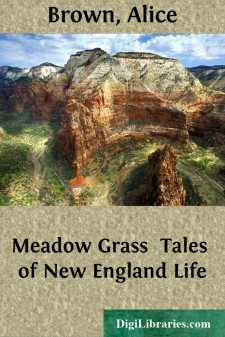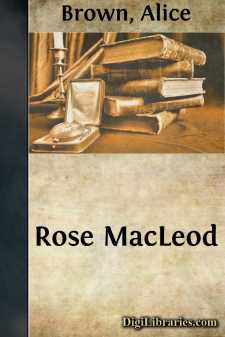Categories
- Antiques & Collectibles 13
- Architecture 36
- Art 48
- Bibles 22
- Biography & Autobiography 813
- Body, Mind & Spirit 142
- Business & Economics 28
- Children's Books 17
- Children's Fiction 14
- Computers 4
- Cooking 94
- Crafts & Hobbies 4
- Drama 346
- Education 46
- Family & Relationships 57
- Fiction 11829
- Games 19
- Gardening 17
- Health & Fitness 34
- History 1377
- House & Home 1
- Humor 147
- Juvenile Fiction 1873
- Juvenile Nonfiction 202
- Language Arts & Disciplines 88
- Law 16
- Literary Collections 686
- Literary Criticism 179
- Mathematics 13
- Medical 41
- Music 40
- Nature 179
- Non-Classifiable 1768
- Performing Arts 7
- Periodicals 1453
- Philosophy 64
- Photography 2
- Poetry 896
- Political Science 203
- Psychology 42
- Reference 154
- Religion 513
- Science 126
- Self-Help 84
- Social Science 81
- Sports & Recreation 34
- Study Aids 3
- Technology & Engineering 59
- Transportation 23
- Travel 463
- True Crime 29
Meadow Grass Tales of New England Life
by: Alice Brown
Description:
Excerpt
NUMBER FIVE.
We who are Tiverton born, though false ambition may have ridden us to market, or the world's voice incited us to kindred clamoring, have a way of shutting our eyes, now and then, to present changes, and seeing things as they were once, as they are still, in a certain sleepy yet altogether individual corner of country life. And especially do we delight in one bit of fine mental tracery, etched carelessly, yet for all time, so far as our own' short span is concerned, by the unerring stylus of youth: the outline of a little red schoolhouse, distinguished from the other similar structures within Tiverton bounds by "District No. V.," painted on a shingle, in primitive black letters, and nailed aloft over the door. Up to the very hollow which made its playground and weedy garden, the road was elm-bordered and lined with fair meadows, skirted in the background by shadowy pines, so soft they did not even wave; they only seemed to breathe. The treasures of the road! On either side, the way was plumed and paved with beauties so rare that now, disheartened dwellers in city streets, we covetously con over in memory that roaming walk to school and home again. We know it now for what it was, a daily progress of delight. We see again the old watering-trough, decayed into the mellow loveliness of gray lichen and greenest moss. Here beside the ditch whence the water flowed, grew the pale forget-me-not and sticky star-blossomed cleavers. A step farther, beyond the nook where the spring bubbled first, were the riches of the common roadway; and over the gray, lichen-bearded fence, the growth of stubbly upland pasture. Everywhere, in road and pasture too, thronged milkweed, odorous haunt of the bee and those frailest butterflies of the year, born of one family with drifting blossoms; and straightly tall, the solitary mullein, dust-covered but crowned with a gold softer and more to be desired than the pride of kings. Perhaps the carriage folk from the outer world, who sometimes penetrate Tiverton's leafy quiet, may wonder at the queer little enclosures of sticks and pebbles on many a bare, tree-shaded slope along the road. "Left there from some game!" they say to one another, and drive on, satisfied. But these are no mere discarded playthings, dear ignorant travellers! They are tokens of the mimic earnest with which child-life is ever seeking to sober itself, and rushing unsummoned into the workaday fields of an aimlessly frantic world. They are houses, and the stone boundaries are walls. This tree stump is an armchair, this board a velvet sofa. Not more truly is "this thorn-bush, my thorn-bush; and this dog, my dog."
Across the road, at easy running distance from the schoolhouse at noontime or recess, crawled the little river, with its inevitable "hole," which each mother's son was warned to avoid in swimming, lest he be seized with cramp there where the pool was bottomless. What eerie wonders lurked within the mirror of those shallow brown waters! Long black hairs cleaved and clung in their limpid flowing....








